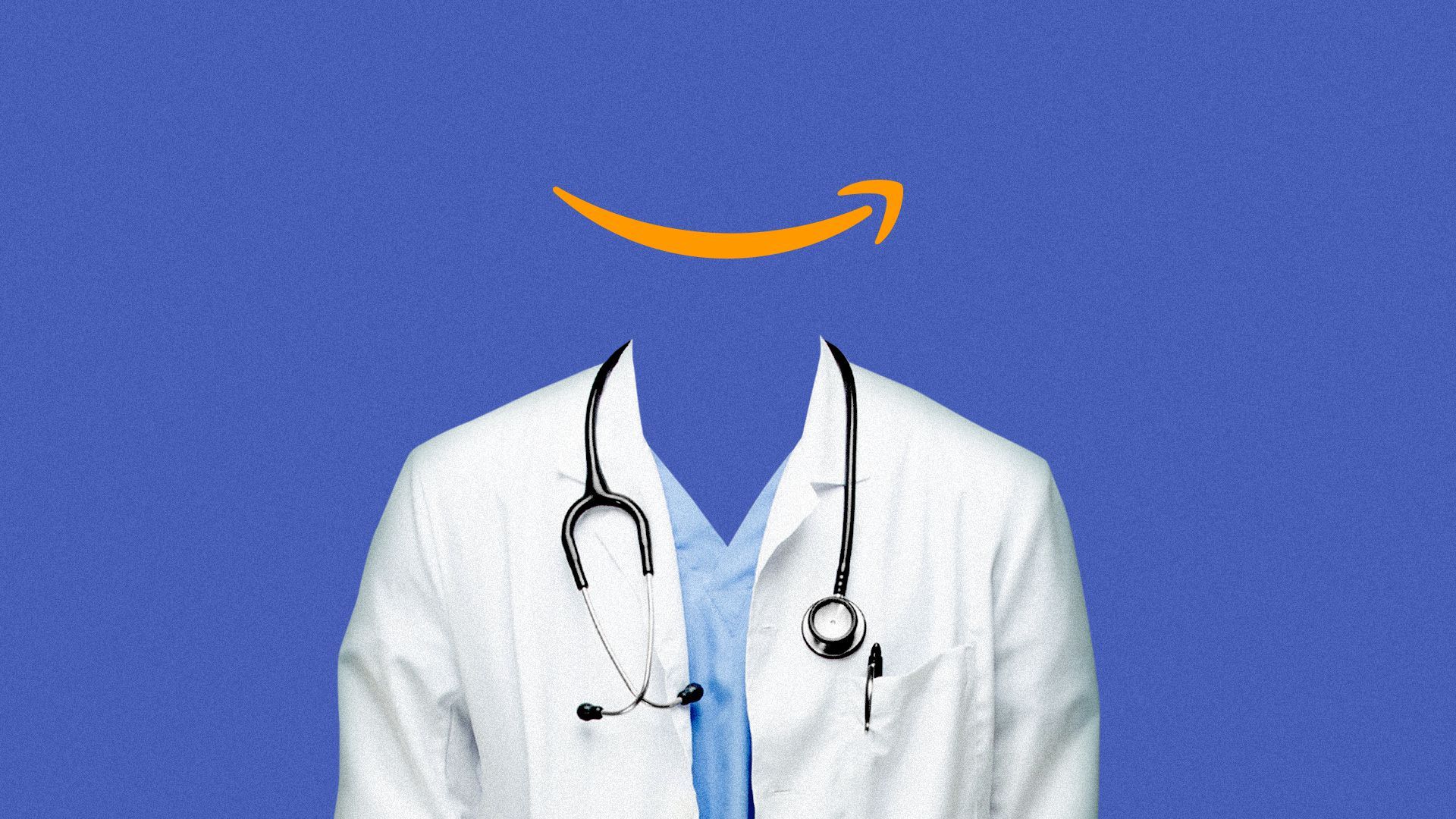
Illustration: Aïda Amer/Axios
Amazon's health care efforts have hit a fever pitch as the announcements roll in — but while its One Medical deal has clear advantages, its pharmacy and telehealth plays currently appear less substantive.
Why it matters: Amazon's wide-ranging moves mirror Elon Musk's attempt to transform tech, yet it remains unclear when the sum of its parts will let the e-commerce giant become a health juggernaut.
Driving the news: Last month, Amazon launched RxPass, a Prime service enabling members to get as many generic medications as they need for $5 a month.
- This follows the launch of Amazon Clinic, a virtual service for common medical issues like allergies and hair loss, and Amazon's $3.9 billion acquisition of primary care clinic operator One Medical last year.
📦 Our thought bubble: Although Amazon's One Medical purchase is a BFD, its other announcements are less game-changing, at least in their current form. So let's make like a box and break it down, shall we?
Zoom in: Neither RxPass nor Amazon Clinic suggests the company is aimed at achieving two of health care's loftiest benchmarks: increased equity and accessibility.
- Rather, they are mostly about expanding Amazon’s existing tentacles into providing care for relatively wealthy and economically secure populations.
- RxPass enables 200 million people, or more than half the U.S. population, to get 30-day supplies of eligible generic prescriptions for $5. But it isn't available to Medicare and Medicaid populations, who are likely to need affordable medications most.
- Also, the service includes only about 50 generic drugs, most of which are already relatively cheap. RxPass cannot be used for brand-name drugs, the world's most expensive medications, and the service is not currently available in all states.
- Amazon Clinic is a cash-pay, virtual care business aimed at common ailments that largely affect the worried well, such as allergies and hair loss (similar to the services provided by companies such as Ro or Hims & Hers). Like RxPass, it cannot be paid for using Medicare or Medicaid.
Yes, but: In contrast to its virtual care and pharmacy activity, Amazon's purchase of One Medical enables the consumer-obsessed giant to outbid rivals in terms of geographic heft and get a toehold into lucrative risk-based Medicare programs, which remain untouched by the company's other efforts.
- "Access to Medicare Plans and employer groups is likely a key consideration that Amazon has with this deal," BTIG analysts David Larsen and Aron Corin wrote in a research note at the time of the announcement.
- "The sleeping giant in the deal may be One Medical’s Medicare Advantage business [Iora] because they can take on massive risk," CareCentrix CEO John Driscoll previously told Axios.
The unboxing: Amazon's health care efforts could be seen as a mix of bold and mediocre, but taken together, they could eventually be game-changing.
- Remember: In addition to the plays above, Amazon has the Halo for fitness monitoring, the Alexa for voice-based commands, a diagnostics division, a powerful cloud presence with AWS, and a retail (or potential food-as-medicine) presence in Whole Foods.
- "Amazon’s customer-centric model has the potential to reinvent the patient experience by putting the patient at the center of their journey to drive value-based and quality care at every touchpoint," Forrester researchers Natalie Schibell and Kara Wilson and contributors Delilah Gonzalez and Peter Harrison wrote in a recent report.
